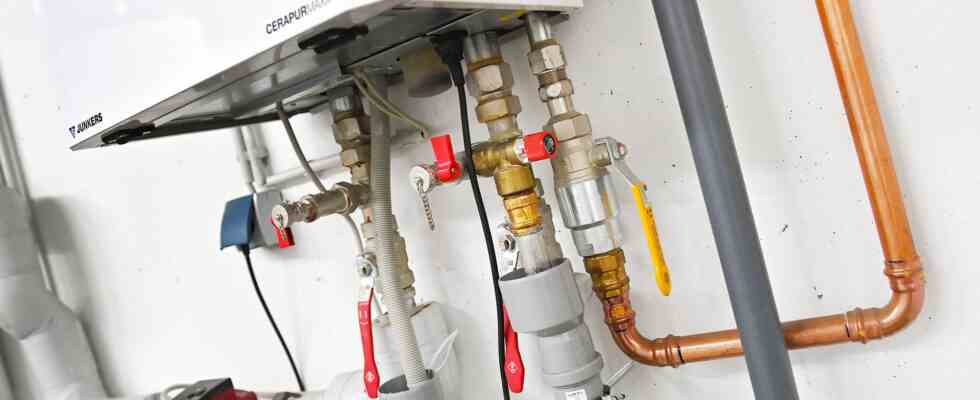Status: 03.04.2023 1:15 p.m
After months of rising prices, energy costs are falling again. But the lower electricity and gas prices often do not reach households. Above all, customers in basic service tariffs often pay more than they have to.
Despite lower exchange and wholesale prices for electricity and gas, most basic supply tariffs from local suppliers cannot do without state aid, according to the comparison portal Verivox. According to an evaluation, 82 percent of the electricity tariffs and even 92 percent of the gas tariffs are above the state price cap.
This applies to a large part of German households: according to the Federal Network Agency, in 2021 at least a quarter of electricity and gas customers were supplied as part of the local basic supply. This share is likely to have increased significantly in the past year due to the energy crisis.
44.4 cents versus 32.9 cents
According to Verivox, the prices in these tariffs are currently particularly high. A kilowatt hour of electricity in the basic supply tariff currently costs 44.4 cents per kilowatt hour (kWh) on average nationwide. Current new customer tariffs for electricity are already available for 32.9 cents per kilowatt hour – which is also well below the state price cap of 40 cents per kilowatt hour.
The situation with gas tariffs is similar. There, households pay 16.1 cents for a kilowatt hour with the basic suppliers, while there are already new customer tariffs for 10.1 cents kWh. The state price cap applies here at 12 cents per kWh.
When will tariffs for households drop?
According to Thorsten Storck, energy expert at Verivox, wholesale prices for energy have fallen continuously over the past few months as the fear of supply bottlenecks receded. “Basic suppliers usually have a long-term procurement strategy. That’s why they were among the cheapest providers on the market at the height of the energy crisis. The picture has now changed, falling procurement costs are having an impact more quickly, especially with new customer tariffs from national suppliers,” says Storck.
Chancellor Olaf Scholz (SPD) asked the energy companies at the end of February to pass on falling wholesale prices to consumers. He “expects that the energy companies will not take advantage of the situation and make special profits,” he told the “Bild” newspaper.
According to estimates by the Federal Network Agency, consumers in Germany will only benefit from the lower wholesale prices for gas in a few months. It will probably take six to twelve months for the reduction in wholesale prices for gas and electricity to reach household customers, Bundesnetzagentur boss Klaus Müller recently told the “Rheinische Post”.
The state could also save billions
The comparison portal Verivox calculates for an average customer of a basic supplier how much the state aid will be over the whole year. The state subsidizes an average basic service customer with 457 euros for gas and 109 euros for electricity. “Consumers can leave the basic service tariff at any time and choose from many tariffs below the price brakes,” Verivox said tagesschau.de. The additional savings for the price brake could therefore be up to 364 euros a year for gas and 278 euros for electricity.
According to the comparison portal, taxpayers would also benefit from this: If all customers switched from the expensive basic service tariff to a cheaper tariff, the state savings could add up to more than three billion euros, according to Verivox.
Are cheap providers reputable?
According to the comparison portal Check24, a price comparison of the suppliers is also worthwhile. With a change from the basic supply to a cheaper alternative provider for electricity, a model household (consumption of 5000 kWh) could save 349 euros in addition to the price brake. According to Check24, customers could save even more with gas: in addition to the relief from the energy price brake of 727 euros per year (with a consumption of 20,000 kWh), an additional 523 euros could be saved here by switching.
Verivox boss Daniel Puschmann turned to the “Augsburger Allgemeine” against the assumption that cheap providers are not serious. “That impression is misleading,” he said. On the one hand, municipal utilities or green electricity providers also have favorable tariffs for new customers. On the other hand, all providers have been checked and approved by the supervisory authority. “If a provider acts dubious, it is the task of the Federal Network Agency to take action against black sheep. Their powers were specially strengthened last year.”

